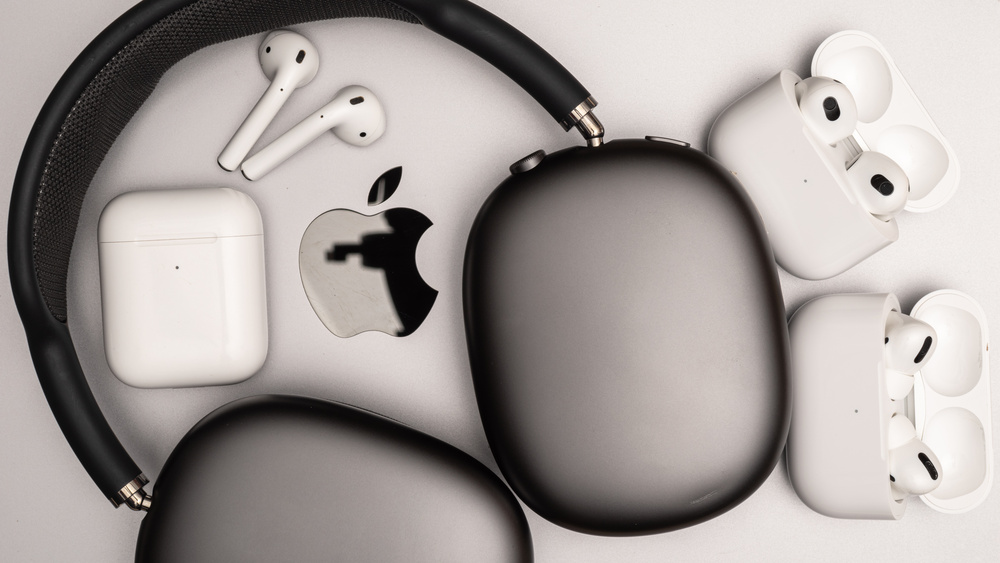
With so many headphones options, the process of buying a pair can feel overwhelming. If you have no idea where to start, we recommend that you consider the following questions and make a list of the features that matter most to you. From there, you can compare your needs to the specifications of the headphones and decide how best to spend your money.
Earbuds or over-ear headphones
It’s vital to choose a pair that you can wear comfortably. Aspects to keep in mind: your hairstyle, earrings/piercings, whether you’ll be performing high-impact movements, and the climate in which you’ll be wearing the headphones. Though earbuds are lighter and more portable, they often have a shorter battery life and sound less immersive than similarly priced over-ear designs, and it can be trickier to find the perfect fit. Over-ear headphones fit more ear shapes easily, but some people may feel hot with their ears always covered, and many headbands aren’t compatible with fluffy hair.
How will you use your headphones
Are you looking for an all-purpose pair that you can take everywhere? Or do you have a specific use in mind, such as travel, workouts, TV watching, office use, or gaming? Some headphones do nearly everything well, while others excel at a certain task. Are you mostly listening to music, or do you need good microphone quality for phone calls and video chats? For office use and gaming, a headset with a boom mic or background-noise reduction might be the way to go. Do you need your earbuds to be waterproof or sweatproof for workouts? By narrowing down and prioritizing specific features, you can focus on spending your money where it counts and skip the unnecessary extras.
What devices will you be connecting to
Depending on what devices you use every day, you may want to choose a pair that works well with any operating system or one that is specifically designed to unlock specialized features on your phone or tablet. How important is voice control, and are you tied to a certain platform, such as Alexa, Siri, or Google Assistant? If you want to connect to a tower PC that has no wireless connectivity, you may want a pair that connects with a wire or USB, depending on what type of outputs your computer has.
Do you need active noise cancellation
Active noise cancellation is great for reducing lower-frequency sounds like the hum of an airplane engine or an HVAC system, but it isn’t as effective with higher-frequency sounds like voices. How effective and adjustable do you need the ANC to be? Some headphones simply offer on/off, whereas others offer adjustable ANC, which makes it easier for you to find a performance and comfort level that works. If you don’t like how ANC affects your ears, or you’re a musician using your headphones for recording, an over-ear pair with excellent passive noise isolation may be a better choice.
Wired or wireless
Wired headphones have had a resurgence in popularity. Among the reasons for the comeback is that, generally, wired has better audio performance for less money, since the cost goes mainly into tuning, drivers, and design, instead of features like Bluetooth. And with wired headphones, you don’t have to worry about charging a battery. Still, many people love the freedom and convenience that wireless headphones bring, especially now that headphone jacks have disappeared from smartphones. If both connection methods sound appealing, consider a pair that can work both wired and wirelessly, but be sure to check whether some features are disabled in wired mode. If you choose wireless, notice the battery life. How long do you plan on listening each day? Are you good about keeping your wireless devices charged, or do you need wireless headphones that can go for long stretches of time without being plugged in? Be honest with yourself on this one, or you’ll just be frustrated later.
What are the control options
When it comes to controlling power, volume, track skip, and the like, do you prefer physical buttons or touch-sensitive pads? We recommend that you try both kinds of controls before you buy, if possible. If dexterity concerns are a factor for you, consider over-ear designs, which often have larger surface areas for the controls compared with true wireless earbuds.

 Admin
Admin
Leave A Reply
Your email address will not be published. Required fields are marked *